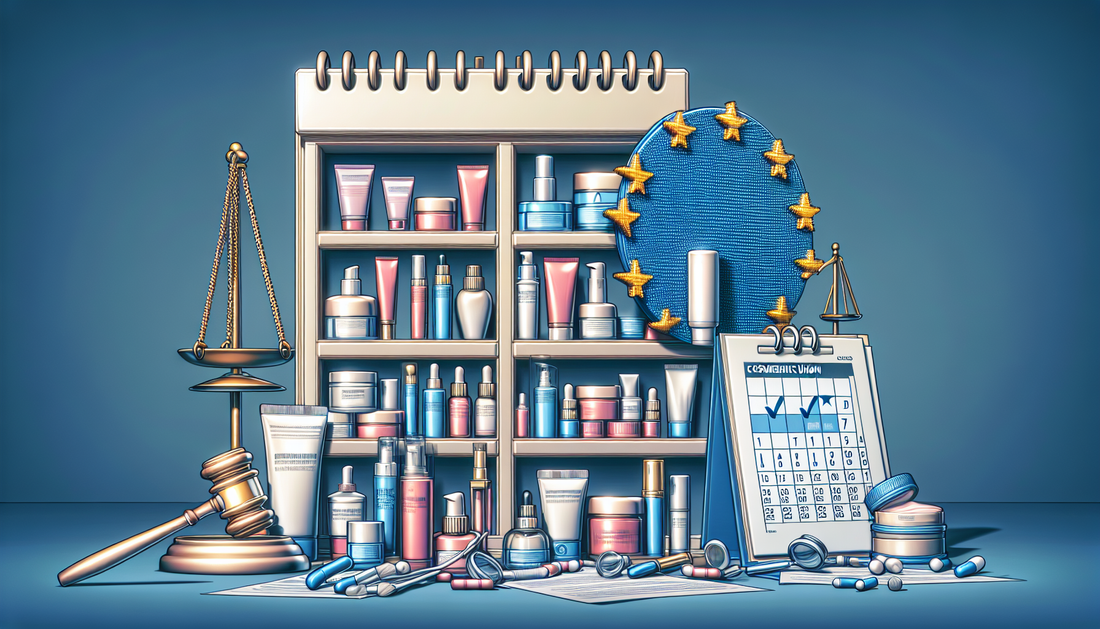
EU's Upcoming Ban on Strong Anti-Aging Products Raises Concerns
AntiAgingMaster 6.9 BedroomShare
The European Union is set to impose a ban on certain strong anti-aging products, raising concerns among consumers and industry stakeholders. The decision, influenced by shifting regulations on cosmetic safety and ingredient transparency, aims to minimize potential health risks while promoting consumer protection. The ban is expected to take effect in early 2024, creating a significant impact on the beauty market.
- The ban affects numerous popular anti-aging products across EU member states.
- Affected companies include major brands headquartered in France and Germany, leading to concerns about revenue loss.
- Consumers fear losing access to effective treatments for aging skin.
- Critics argue the lack of alternatives may harm the quality of skincare options available.
- The announcement was made by the EU Cosmetics Regulatory Authority on September 15, 2023.
- Stakeholders are calling for a review process to ensure fair transition for consumers and brands.
As the deadline approaches, the debate over cosmetic safety versus consumer choice intensifies across the continent.
The recent announcement from the European Union regarding the ban on strong anti-aging cosmetics has sent ripples through the beauty and skincare industry. These legal changes, set to take effect in just eight weeks, have raised concerns among cosmetics enthusiasts and manufacturers alike. The announcement was part of a broader agenda aimed at improving consumer safety and regulating cosmetic ingredients more strictly.
On January 1, 2024, the new regulations will officially come into force. As per the EU's directive, specific potent ingredients commonly used in anti-aging products will be prohibited. The goal is to protect consumers from potentially harmful side effects associated with these strong chemicals, particularly for those with sensitive skin. Critics argue that the ban may limit the availability of effective products while pushing consumers toward less effective alternatives.
Industry experts have noted that this ban could significantly impact the skincare market in Europe. Major companies such as L'Oréal, Estée Lauder, and Unilever, which heavily incorporate these ingredients in their formulations, are currently reevaluating their product lines. Consumers who prefer advanced skincare solutions may soon face a limited selection as companies adjust to comply with the new regulations.
Ashton 6-Drawer Solid Wood Queen Storage Bed ITG-1366B
The Timeline of Regulatory Changes in the EU
The movement towards regulating cosmetic ingredients in the EU has gained momentum over the past few years. In March 2022, the EU Commission announced a public consultation on the safety of cosmetic ingredients. By June 2022, a report highlighting potential risks associated with certain anti-aging products was published. This report initiated the discussion on the need for regulatory changes.
Subsequent meetings among stakeholders led to a draft proposal in November 2022. This proposal included banning substances linked to adverse health effects. Following intense debates and revisions, the final regulations were published in September 2023, outlining a clear path for the implementation on January 1, 2024. The relatively short timeline demonstrates the speed with which the EU is acting to enhance consumer protection.
Industry Responses
In light of the upcoming changes, leaders from various beauty companies have expressed their concerns. L'Oréal's spokesperson emphasized the importance of suitable alternatives for consumers. They suggested that while safety is paramount, the ability to effectively address aging signs is also crucial for many users. The spokesperson indicated that the company would work diligently to reformulate their products without compromising efficacy.
Similarly, Estée Lauder representatives voiced their intention to comply with the regulations while seeking innovative ways to maintain product effectiveness. They are exploring new ingredient alternatives that align with the EU's safety standards. Their goal is to balance consumer safety with the demand for potent skincare solutions.
Consumer Reactions to the Ban on Anti-Aging Products
Consumers have mixed feelings about the impending ban. Many users of strong anti-aging products are concerned about losing their effective skincare solutions. Social media platforms are abuzz with discussions about the potential impacts of this legislation. Fans of popular products are expressing disappointment, fearing that the alternatives may not deliver the same results.
A beauty blogger from Berlin, Anna Müller, shared her thoughts on the matter, stating, "While I understand the need for regulation, it's disheartening to think that effective products will be taken away. How will we address aging issues without these strong formulations?" Her sentiments reflect a broader anxiety among consumers who rely on potent ingredients for their skincare regimens.
Future of the Cosmetics Industry in the EU
As the new regulations draw closer, the future of the cosmetic industry in the EU remains uncertain. The changes could lead to innovative formulations as companies seek to adapt and develop new products that adhere to the updated laws. There is potential for growth in the market for natural and less potent ingredients, as brands pivot towards safer alternatives in their lines.
Companies might also increase their research and development efforts in safe anti-aging technologies. Enhanced focus on ingredient safety could pave the way for groundbreaking discoveries in the beauty industry. However, the success of this shift will largely depend on consumer acceptance and the ability of brands to communicate the efficacy of new formulations.
Conclusion: Navigating the New Cosmetic Landscape
In conclusion, the EU's ban on strong anti-aging products signifies a pivotal moment for both consumers and the cosmetic industry. While safety is a critical concern, the challenge lies in ensuring that consumers still have access to effective solutions for their skincare needs. As the deadline approaches, stakeholders must work collaboratively to navigate this new landscape, addressing both safety and efficacy continuously.
Whether this regulation will lead to a more sustainable and safer beauty industry remains to be seen. However, one thing is clear: as the landscape changes, consumers and brands alike must prepare to adapt to a new era of cosmetic regulations and expectations.











